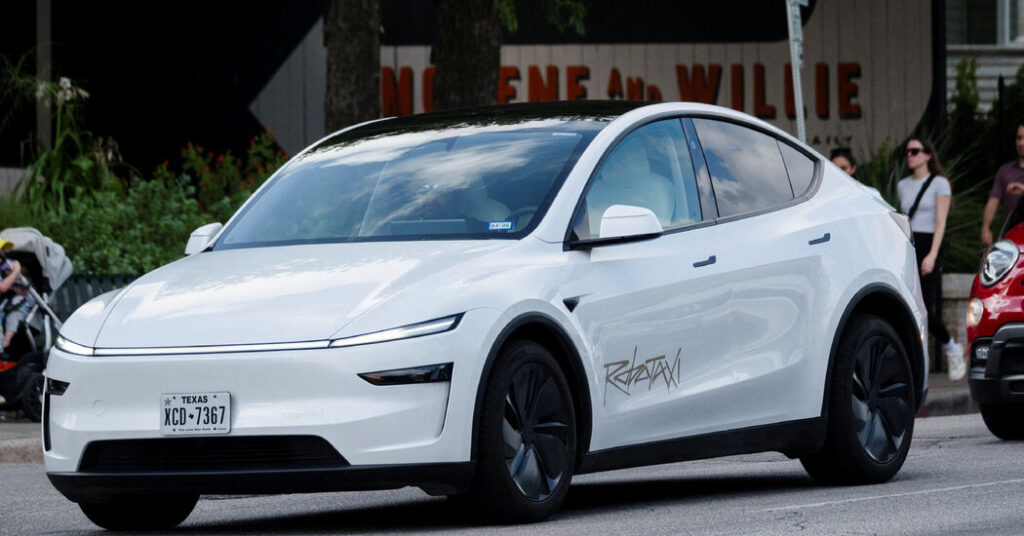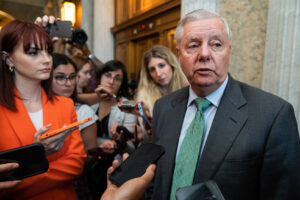
Tesla’s global car sales experienced a significant decline in the second quarter, continuing a downward trend that began last year. The company reported delivering 384,000 vehicles from April through June, a noticeable drop from the 444,000 units sold during the same period in the previous year. This slump comes as Tesla shifts its focus towards developing autonomous driving technologies rather than introducing new models to attract car buyers.
The announcement highlights the challenges Tesla faces with its limited and aging vehicle lineup, which has struggled to compete with emerging Chinese carmakers like BYD and established Western competitors such as General Motors, Volkswagen, and BMW. Despite these challenges, Tesla’s CEO, Elon Musk, remains committed to his vision of a future dominated by self-driving cars.
Elon Musk’s Vision for Autonomous Vehicles
Elon Musk has consistently emphasized the importance of autonomous driving technology for Tesla’s future. He envisions a world where Teslas can operate autonomously and function as driverless taxis, which he believes will revolutionize the automotive industry. This vision has resonated with a significant number of investors, propelling Tesla’s stock market valuation to over $940 billion.
Wall Street had anticipated a decline in Tesla’s sales, and the company’s shares rose in early trading on Wednesday, reflecting investor confidence in Musk’s long-term strategy. Last month, Tesla initiated a closely watched test of its self-driving ambitions by deploying specially equipped Model Y sport utility vehicles, dubbed Robotaxis, to offer paid rides to selected guests in Austin, Texas.
Challenges from Competitors and Market Dynamics
The decline in Tesla’s sales underscores the increasing competition in the electric vehicle market. Chinese automakers, in particular, have been aggressive in expanding their market share, offering a range of affordable and technologically advanced electric vehicles. Companies like BYD have gained significant traction, challenging Tesla’s dominance in the EV sector.
Meanwhile, traditional automakers such as General Motors, Volkswagen, and BMW have ramped up their electric vehicle offerings, investing heavily in new models and technologies. This has put additional pressure on Tesla to innovate and diversify its product lineup to maintain its competitive edge.
Expert Opinions and Market Analysis
Industry experts suggest that Tesla’s focus on autonomous driving could be a double-edged sword. On one hand, it positions the company at the forefront of a potentially transformative technology. On the other hand, it risks alienating customers who are looking for a broader range of vehicle options.
“Tesla’s emphasis on self-driving technology is a bold move, but it comes with significant risks,” said automotive analyst Jessica Caldwell. “The company needs to balance its long-term vision with the immediate demands of the market.”
Despite these challenges, Tesla’s commitment to innovation continues to attract investors and enthusiasts who believe in Musk’s vision of a driverless future.
Future Prospects and Strategic Implications
The decline in Tesla’s sales raises important questions about the company’s strategic direction. While the focus on autonomous driving is ambitious, Tesla must also address the immediate needs of its customers and adapt to the rapidly changing automotive landscape.
Looking ahead, Tesla’s success will likely depend on its ability to strike a balance between pioneering new technologies and meeting market demands. The company’s ongoing efforts to expand its manufacturing capabilities and introduce new models could play a crucial role in sustaining its growth and maintaining its leadership in the electric vehicle industry.
As Tesla navigates these challenges, the automotive world will be watching closely to see how the company adapts to the evolving market dynamics and whether it can successfully realize Musk’s vision of a self-driving future.






